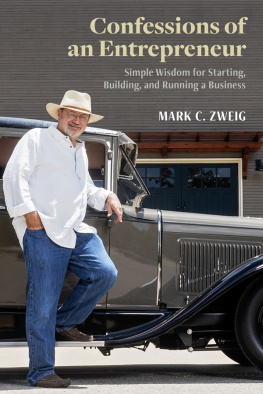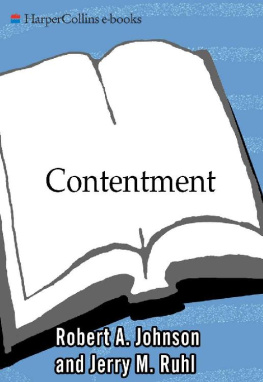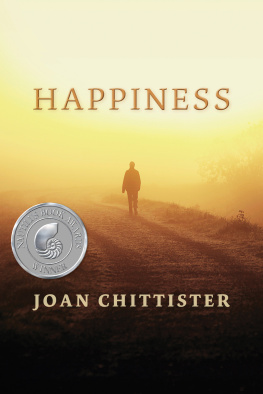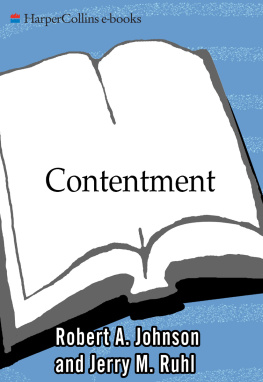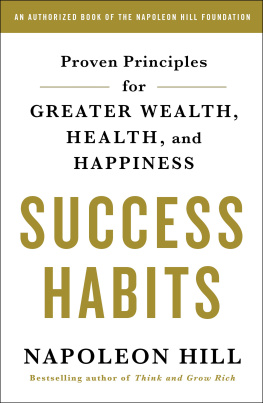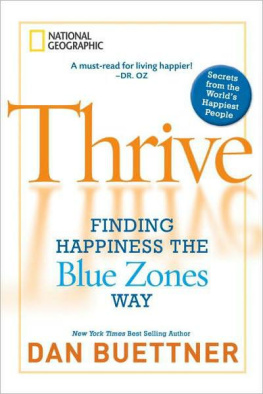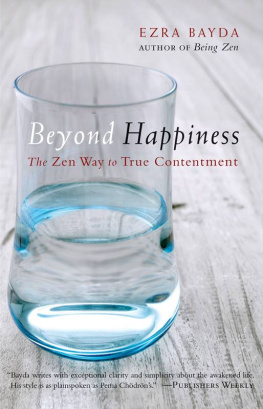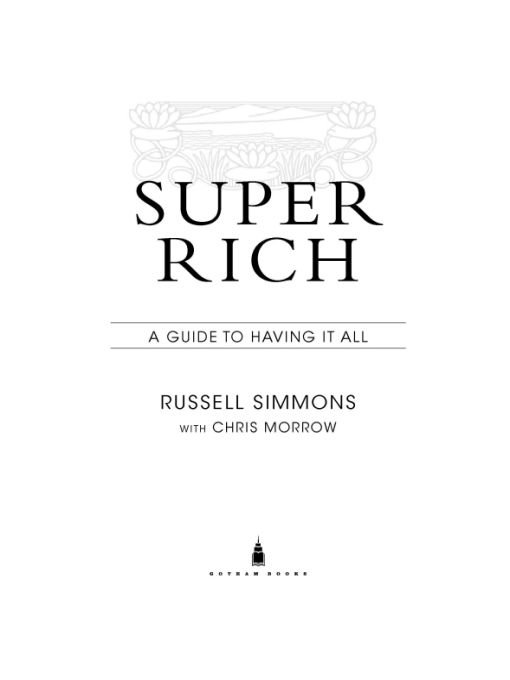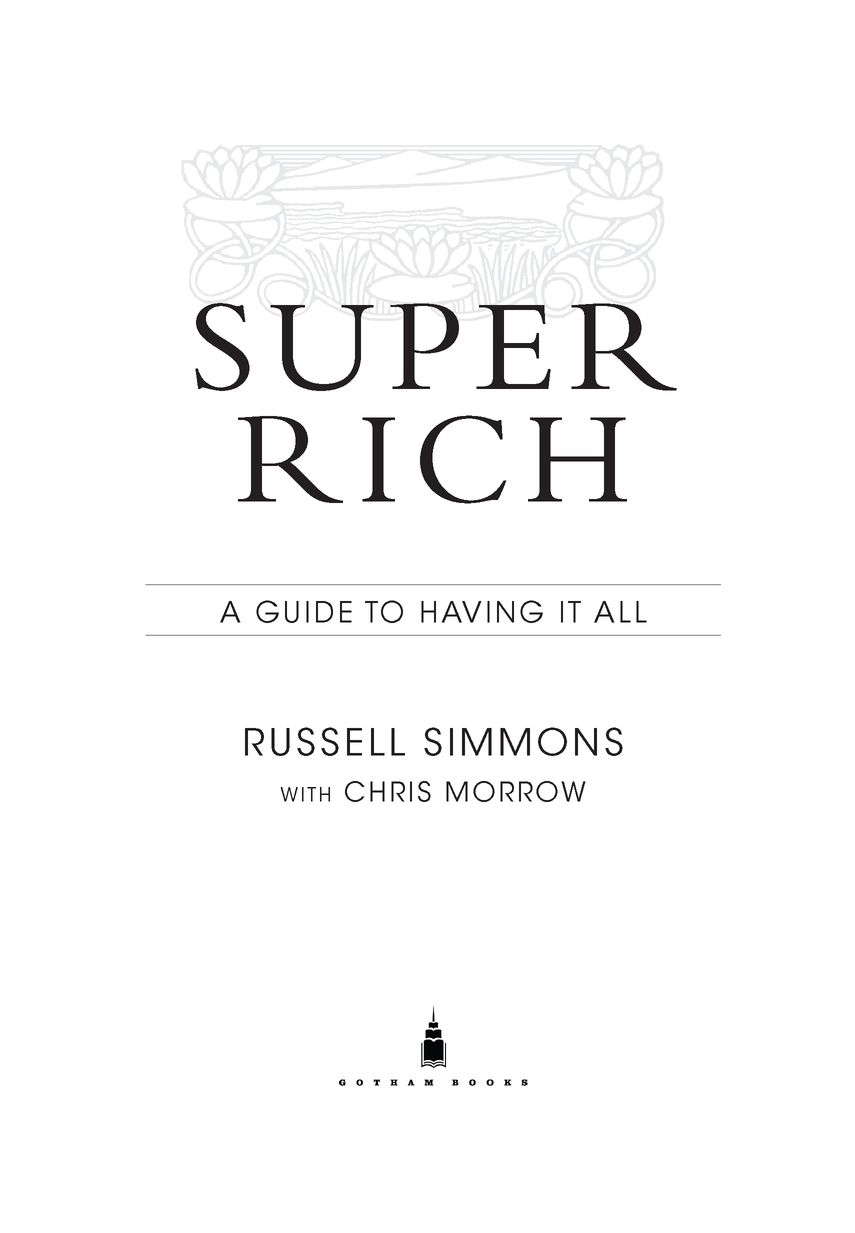Table of Contents
To my two first ladies,
Ming Lee and Aoki Lee
REDEFINING RICH
Life finds its purpose and fulfillment in the expansion of happiness.
MAHARISHI MAHESH YOGI
Id like to start this book with a few words about my last one.
Though its title might have suggested otherwise, Do You! was written for me.
Not in the selfish ways that can motivate somefor money, the ego boost of seeing your words in print, or receiving accolades in the press. Instead, I wrote Do You! primarily as a cleansing process.
As those familiar with my story already know, I come from Hollis, Queens, a lower-middle-class African-American community where spiritual direction primarily came from either the Christian Church or The Nation of Islam, worldly success was reflected by the car you drove, physical prowess was measured by how well you shot a jumper, and everyones diet revolved around meat.
Yet after embracing the physical practice of yoga roughly fifteen years ago, and my subsequent exposure to spiritual texts like the Yoga Sutras, the Bhagavad Gita, and the Hatha Yoga Pradipika, I realized that there were paths I could take that might prove more beneficial for me than those I was expected to follow. Paths that still ran parallel to the Judeo-Christian tradition of my upbringing, but that would allow me to become more connected to my higher self and as a result less harmful in my relationship with the world.
As I became more committed to practicing yoga, meditation, and philanthropy, and removing meat from my diet, I could feel myself becoming a better businessman, a better leader, a better father, and a better giverin short a better human being.
On the eve of my fiftieth birthday, I felt an urge to unburden myself of some of those principles Id learned over the years by sharing them with the world. I had already discussed these beliefs with my friends and family (some of whom would probably even say ad nauseam) and promoted them in interviews over the years, but I had never attempted to disseminate them in an organized and digestible manner.
I described that urge as selfish because while I certainly wanted to help people transform their lives, I was equally motivated by the belief that downloading all this information out of my heart and into a book would make me a better person. By writing a book about these principles, I believed I would be able to glean a better understanding of them in the process.
Outside of my own development, I honestly didnt suspect that the book would have much of an impact. The rap on me, no pun intended, was that I was the guy who helped put hip-hop music on the map by co-founding Def Jam Records and introducing artists like Run DMC, The Beastie Boys, Public Enemy, LL Cool J, Ludacris, DMX, and Jay-Z to mainstream America. Who found subsequent success through ventures like Def Comedy Jam, Def Poetry Jam, Phat Farm clothing, and Runs House. Who over time earned the title of the Godfather of Hip-Hop, as well as one Im a little more comfortable with, Uncle Rush.
And while those are accomplishments that Ill always humbly cherish, I didnt feel they necessarily set the stage for me to write a book where yoga, philanthropy, and God played a major role. Sure, people might turn to me for concrete advice on how to get a record deal or launch a clothing line, but would they view me as someone who could help them get in touch with their higher selves? Would they see the connection between my worldly successes and my spiritual practices?
The answer, to my eternal gratitude, was yes. Despite my reservations, Do You! connected with a larger audience than I ever expected it would, earning great reviews and even becoming a New York Times best seller. Yet while those worldly accomplishments were nice for my ego, my greatest validation came from the reactions I heard on the street. If I went to see a movie, it always seemed like when the film was over, a couple of people would come up to me and say, Hey, Russell, I just wanted to thank you for Do You! It really changed my life. The book seemed to resonate with so many folks, from so many different walks of life.
There was the young black kid who approached me at one of our Hip-Hop Action Network Summits and told me that Do You! had motivated him to go to college instead of staying on the streets and hustling like the rest of his friends.
There was an older Russian Jewish socialite, someone that Id see at society events around New York City, who came up to me at a party and told me that while she had suffered from a very dark depression for many years, Do You! finally helped her find some light in her life.
There was Brother Mohammad, who stood outside my office in a bow tie and overcoat every day for a week, waiting for a chance to pitch me a business idea. When we finally spoke, the first thing he did was pull out a worn copy of DoYou! and show me all the passages that hed underlined, concepts he said had helped him find the confidence to pursue his dreams.
There was the heroin addict around the corner from my office who told me Do You! was the transformational tool that helped him finally kick his habit for good. And I could go on and on.
The reaction to Do You! was perhaps the most meaningful Ive received for any project Ive shared with the world. I personally run five philanthropic organizations in addition to supporting several organizations Im not directly associated with. Ive also spent years working to help put an end to senseless drug laws, the abuse of animals, and every kind of ism and phobia, efforts that I like to think have had a positive impact. But none of those efforts have been a greater gift than Do You! s ability to lift peoples consciousness by even just one degree. None of those efforts provided me with a comparable platform from which I could share the gift of consciousness and help people awaken to their true potential. Inspired to take full advantage of that platform, I decided to pen a follow-up to Do You! that went deeper into the spiritual practices that have become more and more important to me as Ive gotten older.
I realize that given Do You!s emphasis on spiritual principles, some of you might be surprised by the title of this book. So before we go any further, let me clarify why I decided to call it Super Rich. The journey that Im promoting in this book, despite what the title might seem to suggest, is not one thats going to culminate in a mansion with a luxury car in the driveway. What Im encouraging you to strive for, and really what Im seeking myself, is something much greater. So rather than any state of material abundance, Super Rich actually refers to living in a state of consciousness where youre able to see the miracles of life unfolding in front of you all the time.
Its a state where your connection to your higher self is so strong that youll be able to recognize that theres no difference between being broke and being a millionaire, between a beautiful sunset and a terrible thunderstorm, between a newborn baby and the corpse of an old man. Its a state where youll be able to appreciate that your entire experience as a human being is blissful and sublime.


